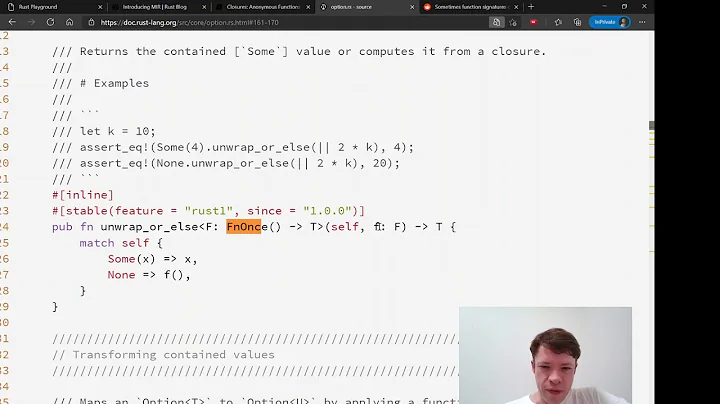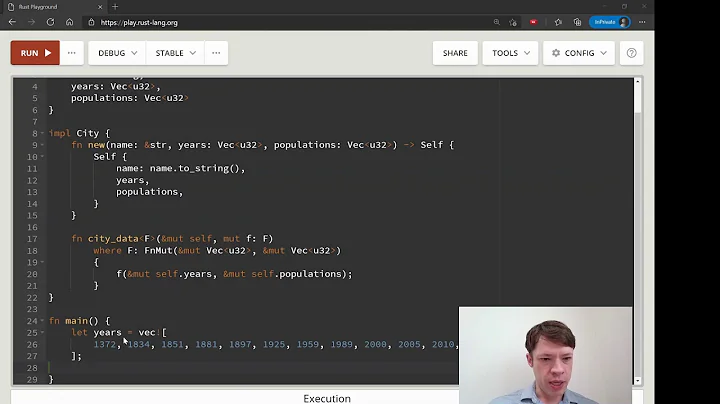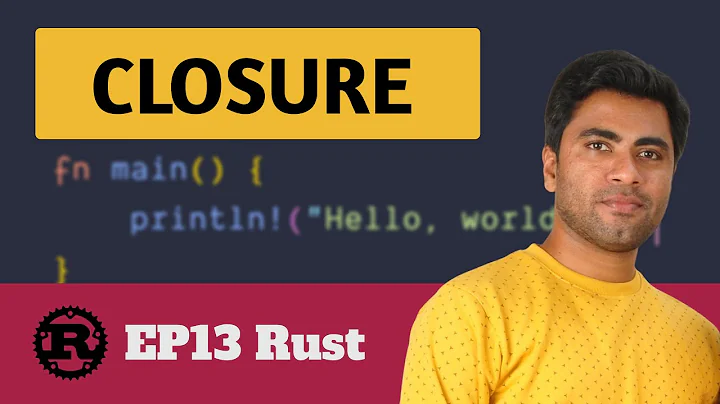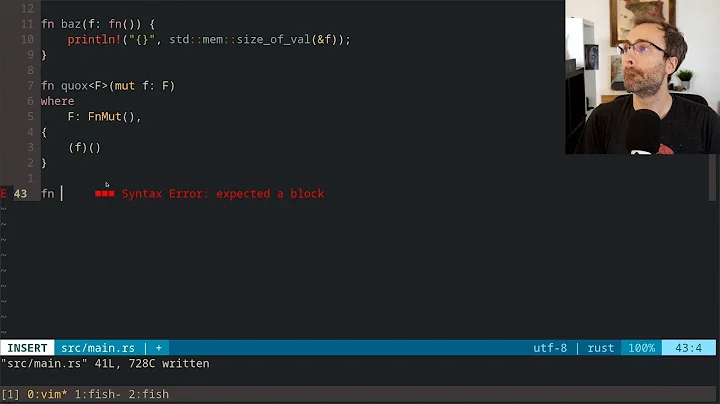When does a closure implement Fn, FnMut and FnOnce?
36,502
The traits each represent more and more restrictive properties about closures/functions, indicated by the signatures of their call_... method, and particularly the type of self:
-
FnOnce(self) are functions that can be called once -
FnMut(&mut self) are functions that can be called if they have&mutaccess to their environment -
Fn(&self) are functions that can be called if they only have&access to their environment
A closure |...| ... will automatically implement as many of those as it can.
- All closures implement
FnOnce: a closure that can't be called once doesn't deserve the name. Note that if a closure only implementsFnOnce, it can be called only once. - Closures that don't move out of their captures implement
FnMut, allowing them to be called more than once (if there is unaliased access to the function object). - Closures that don't need unique/mutable access to their captures implement
Fn, allowing them to be called essentially everywhere.
These restrictions follow directly from the type of self and the "desugaring" of closures into structs; described in my blog post Finding Closure in Rust.
For information on closures, see Closures: Anonymous Functions that Can Capture Their Environment in The Rust Programming Language.
Related videos on Youtube
Author by
Denilson Amorim
Updated on August 23, 2022Comments
-
Denilson Amorim over 1 year
What are the specific conditions for a closure to implement the
Fn,FnMutandFnOncetraits?That is:
- When does a closure not implement the
FnOncetrait? - When does a closure not implement the
FnMuttrait? - When does a closure not implement the
Fntrait?
For instance, mutating the state of the closure on it's body makes the compiler not implement
Fnon it.-
 Shepmaster almost 9 yearsHave you seen this recent great article on closures?
Shepmaster almost 9 yearsHave you seen this recent great article on closures?
- When does a closure not implement the
-
nalply almost 9 yearsIf a closure only implements
FnOnce, does this mean that it can be called only once? -
 huon almost 9 years@nalply, yes, only once.
huon almost 9 years@nalply, yes, only once. -
sleeparrow over 8 yearsI misread nalply's comment and it caused me some confusion. Future readers, please note that he said "if a closure only implements
FnOnce". -
 bluss over 7 yearsImplementation detail: will automatically implement as many of those as it can. is not entirely true, it will implement them automatically if it seems to be needed. You can detect a missing Fn-impl for a closure that was used for an FnMut argument using specialization. This is bug github.com/rust-lang/rust/issues/26085
bluss over 7 yearsImplementation detail: will automatically implement as many of those as it can. is not entirely true, it will implement them automatically if it seems to be needed. You can detect a missing Fn-impl for a closure that was used for an FnMut argument using specialization. This is bug github.com/rust-lang/rust/issues/26085 -
Paul Razvan Berg over 3 yearsI still struggle to understand how all closures implement
FnOnceeven if they can be called multiple times. The name for this trait is confusing. -
hjfreyer over 3 yearsA couple ways to think about it: 1. The "Once" in
FnOncerefers to an upper bound on how many times the caller will invoke it, not how many times it can be invoked. 2. You can always convert a closure that can be called many times into a closure that can only be called once: simply throw away any memory associated with the closure after the first call. But you can't convert it back the other way. -
nikoss about 2 yearswhat self are you talking about here? ||{} doesn't have a self. where does the self come from?
-
 huon about 2 years@nikoss the
huon about 2 years@nikoss theselfof the trait method. It is the struct that contains the captured variables (environment).







